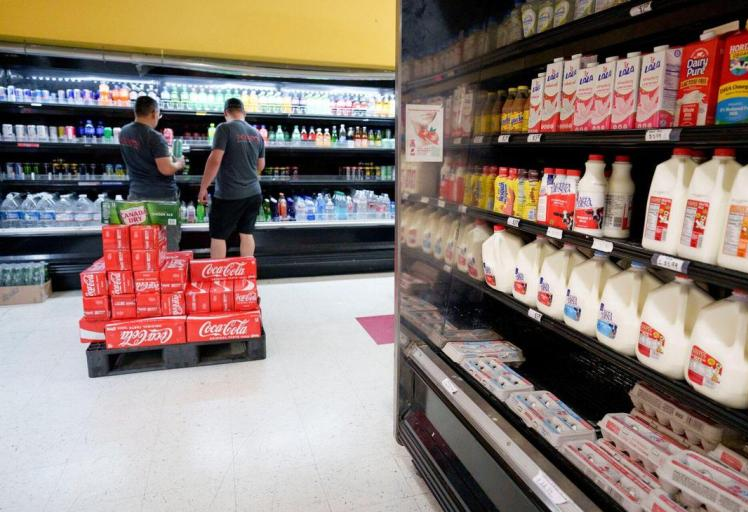
U.S. President Donald Trump's plan to impose tariffs on imports to force manufacturers to move production to the United States has been met with skepticism from an important audience: American consumers.
A Harris Poll survey conducted for Bloomberg News found that nearly 60 percent of American adults expect Trump's tariffs to lead to higher prices. Some 44 percent believe tariffs could be bad for the U.S. economy, while 31 percent believe they will boost the economy.
Even within the president's own party, there are many who are not sold on his trade plan. Only half of Republican respondents believe tariffs will boost the economy. The survey of 2,121 U.S. adults was conducted Feb. 6-8 and has a margin of error of 2.4 percentage points.
While many of Trump's proposed tax plans have yet to be implemented, the findings suggest that his tariff stick plan is at risk of a political backlash. And his message on the issue has yet to resonate with many consumers.
Trump returned to the White House in part by vowing to lead the United States into a new era of prosperity and appealing to popular anger over rising prices. Trump has touted tariffs as a solution that would not only bring manufacturing jobs back to the United States and increase government revenue, but also offset the cost of the tax cuts.
But economists have long pointed out that tariffs will lead to higher prices and slower growth.
For the consumers who drive the US economy, the consequences could be clear: the tariffs Mr Trump has already imposed on Chinese products this year, and those he has threatened to impose on Canadian and Mexican imports, cost the average American household more than $1,200 a year, according to the Peterson Institute for International Economics.
Retailers like Walmart are already bracing themselves, with the giant retailer's chief financial officer recently warning about "consumer behavior and uncertainties related to global economic and geopolitical conditions." U.S. retail sales fell by the most in nearly two years in January, and tariffs can be blamed at least in part. Another factor is what some economists believe was a rush in late 2024 to get ahead of higher prices due to new import tariffs, which subsided in the first month of this year.
Even before he unveiled some specific tariff plans, cracks were beginning to show in the economy.
At the same time, about 61 percent of U.S. adults in the survey conducted for Bloomberg News said they noticed grocery prices rising in January. While the price of food excluding eggs rose only slightly in January, the results of the survey show that consumers continue to view the supermarket pricing environment as unfavourable.
Economists' concerns about Trump's tariffs mostly concern business investment, and uncertainty over U.S. trade policy will cause companies to put capital spending and hiring plans on hold. But tariffs could also have a chilling effect on consumer spending, as shoppers tend to become more cautious amid fears of rising prices.
"With prices already so high, inflation is a scare right now." 'Whenever inflation data is involved, they become more sensitive,' said Eliza Winger, U.S. economist at Bloomberg Economics Research.
A study of tariffs during Trump's first term found that U.S. importers and consumers bear most of the cost of import taxes.
Trump claims the tariffs will spur more factory employment. In fact, the opposite was true during the trade wars of his first term, and some voters seem unconvinced that the policies will have the effect Trump claims.
In the survey, respondents were roughly evenly split when asked whether they thought tariffs would create more manufacturing and jobs in the United States and therefore be worth the pain of higher prices.
But even if the tariffs do spur a manufacturing revival, it's not clear how much political capital it will bring Trump.
In the survey, many respondents believe that being able to afford household expenses is the most important indicator of the strength of the U.S. economy. Only 13 percent of respondents said it was most important to produce more products in the United States.
Thirty-eight percent of consumers say they think the U.S. economy is good for them. When asked how they felt about the economy, stress topped the list at 42 percent and anxiety at 41 percent.

The South Korean political arena has once again been embroiled in a public controversy over a judicial investigation that has shaken the entire nation.
The South Korean political arena has once again been embroi…
On the morning of December 29th local time, the precious me…
According to the US media Barchart, recently, the fluctuati…
On December 29th, Mar-a-Lago in Florida, USA, witnessed a h…
SoftBank Group announced on Monday that it has agreed to ac…
Recently, the US State Department issued a visa ban, adding…